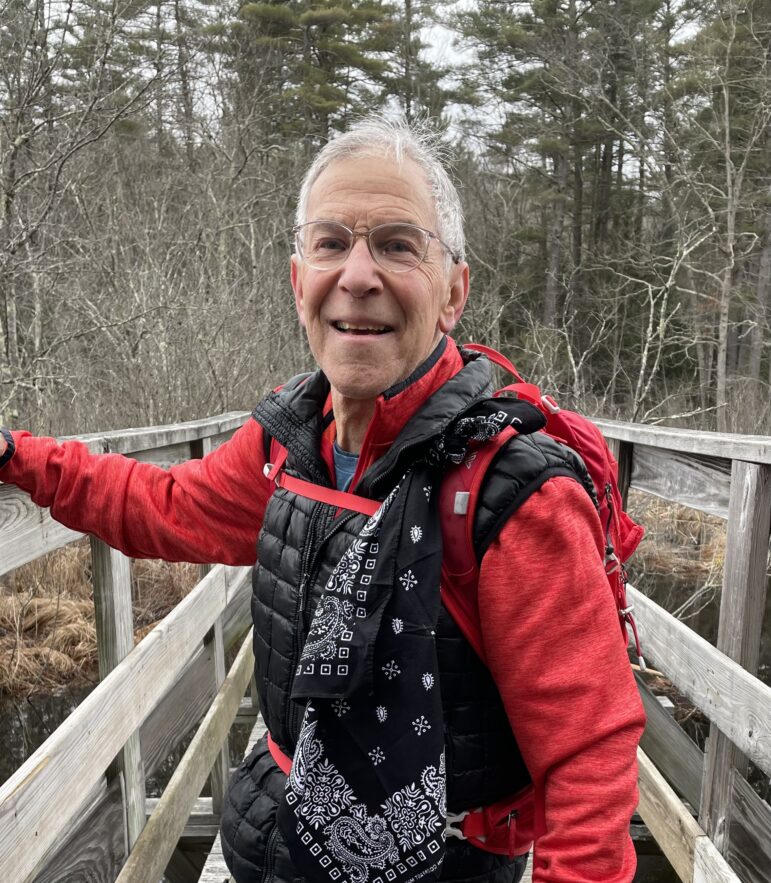Read Northern Pass appeal here: New Hampshire Supreme Court appeal
By GARRY RAYNO, InDepthNH.org
CONCORD — The criteria the Site Evaluation Committee used to deny the Northern Pass Transmission project was “unduly or impermissibly vague,” developer Eversource claims in appealing the decision to the state Supreme Court.
Filed late Friday afternoon, Northern Pass attorneys also claim regulators prematurely ended deliberations before assessing the project’s benefit which could have swayed the decision, and failed to follow statutes and its own rules.
“This is the clear case in which an agency’s decision is so far outside the bounds of reasonableness that it calls out for a reversal by this Court. Unless this Court accepts this appeal and reverses the Orders, no energy developer will ever have confidence that the SEC will fairly evaluate an application,” writes attorney Wilbur Glahn, for the developers. “As a result, developers will be deeply reluctant to invest resources in this State, to the detriment of its citizens and in contravention of the clear energy policy goals established by the Legislature.”
After 70 adjudicative hearings, 154 witnesses and reviewing 2,176 exhibits, the SEC voted 7-0 Feb. 1 to deny Eversource’s application saying the company failed to meet its burden of proof the $1.6 billion project to bring 1,090 megawatts of Hydro-Quebec electricity to New England would not interfere with the orderly development of the region.
The committee said Eversource and its experts failed to provide enough credible evidence for the committee to make an informed decision on the project’s impact on property values, local businesses, tourism and changes in land use.
The committee reaffirmed its decision on the same 7-0 vote in May after Northern Pass officials asked the SEC to reconsider. After that decision, Northern Pass officials said they expected to file an appeal to the state Supreme Court and on Friday they did.
Eversource NH president Bill Quinlan reaffirmed the utility’s commitment to the 192-mile project stretching from Pittsburg to Deerfield, which was first proposed in 2010, although it was dropped after initially being selected to deliver Hydro-Quebec electricity to the Massachusetts Clean Energy project.
“The need for new sources of clean energy in New England to meet customers’ demand for electricity is greater than ever,” said Quinlan. “We remain fully committed to making this important clean energy project a reality for customers in New Hampshire and the region.”
In its 150-page court filing, Northern Pass attorneys ask the court to consider questions to determine if the SEC’s decision is unreasonable or unfair.
They claim the SEC failed to carry out its legal obligation to reach a decision on all four criteria needed to approve a project, noting, if it had, the committee would have considered the projects benefits in making its decision and discussed mitigations that would have addressed concerns raised by the board.
“The SEC’s failure to complete its deliberations was just the first of a panoply of arbitrary and capricious decisions,” Glahn writes.
The SEC determined the project failed to meet one of the four criteria and could not receive a permit so halted deliberations on the final two criteria.
On appeal the developers argue the statutes and rules on orderly development are vague and open ended allowing arbitrary decisions and the SEC failed to clarify or offer guidance on the standards.
Instead the attorneys argue the SEC failed to present evidence to support its conclusion the project did not meet the burden of proof “relative to these vague, undefined standards, and applied erroneous and purely arbitrary standards in finding that Applicants had not met their burden of proof.”
They write the SEC never did define region and several members of the board were confused by the term.
The SEC failed to consider evidence or present factual findings in making its determination, while requiring the applicant to provide greater and more specific details than required by law or rules.
“This proceeding is a textbook case of arbitrary administrative decision-making that violated RSA chapter 162-H and the Applicants’ due process rights,” Glahn writes.
The high-voltage transmission project through the North Country, White Mountains, Lakes Region and through the Capital area has been controversial since it was first proposed.
Developers agreed to bury about 60 miles of the line, mostly through the White Mountain National Forrest, while much of the rest of the line would be in existing utility right-of-ways, although with larger towers. The project did include a new 32-mile transmission corridor through the state’s most northern communities.
The project was opposed by environmentalists and conservationists, small business owners, residents along the route, local municipal and planning officials and all but two of the host communities.
The project had the support of large businesses and business organizations, unions and economic development officials.
The Supreme Court will first have to accept the case, which it is expected to do, and then set a schedule to file briefs before hearing the appeal. The case could take up to a year for the court to decide.
Garry Rayno may be reached at garry.rayno@yahoo.com.
Read InDepthNH.org’s Northern Pass coverage here.
Long-Term Contracts for Northern Pass’ Replacement Filed for Mass. Approval
Lots of Legal Wrangling, But Northern Pass Is Still The End Game
Regulators Refuse Northern Pass Reconsideration; Eversource Refuses To Give Up





